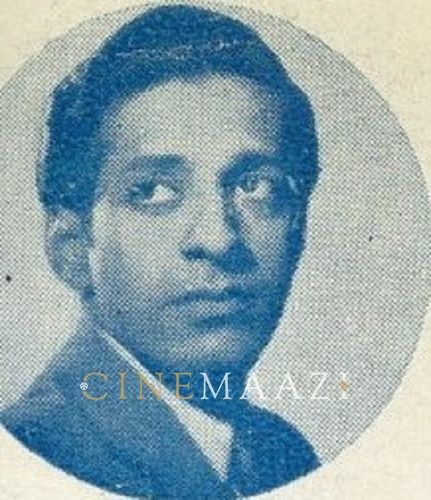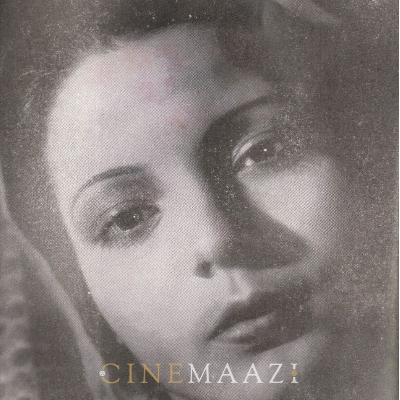S P Balasubrahmaniam
- Real Name: Sripathi Panditaradhyula Balasubrahmaniam
- Born: 4 June, 1946 (Nellore, Madras Presidency)
- Died: 25 September, 2020 (Chennai)
- Primary Cinema: Telugu
- First film: Sri Sri Sri Maryada Ramanna (1967)
- Parents: Sakunthalamma, S P Sambamurthy
- Spouse: Savithri
- Children: Pallavi, S P B Charan
Hailed as ‘Paadum Nila' or ‘Singing Moon’ by his countless fans, S P Balasubrahmaniam is known for his rich, smooth and vibrant voice which conveyed a range of emotions. One of the most prominent and prolific singers, he rendered over 40,000 songs mainly in Tamil, Telugu, Malayalam, Kannada and Hindi, over the course of a career that spanned more than five decades. Winner of six National Awards for his songs in Sankarabharanam (1979), Ek Duuje Ke Liye (1981), Saagara Sangamam (1983), Rudraveena (1988), Sangeetha Sagara Ganayogi Panchakshara Gavai (1995), and Minsaara Kanavu (1996), he was also honoured with two of India’s top civilian awards - the Padma Shri in 2001, the Padma Bhushan in 2011, and the Padma Vibhushan (posthumously) in 2021. Among his most popular songs are Omkaara nadhaanu, Tere mere beech mein, Vedam anuvanuvuna, Cheppaalani undi, Umandu ghumandu ghana gar je badara, Thanga thamarai, Jabbili kosam-malle, Kaadhal rojave, Mere rang mein rangne wali, Dekha hai pehli baar, Dil deewana, Tumse milne ki tamanna hai, Wah wah Ramji, Saathiya tune kya kiya, Roop suhana lagta hain, Bahut pyar karte hain, and Mujhse juda hokar. Also a music director, character actor, dubbing artist, film producer, and television presenter, he also won 25 Andhra Pradesh state Nandi Awards for his work in Telugu cinema, numerous other state awards from Karnataka and Tamil Nadu, and six Filmfare Awards South.
He was born in Nellore, Madras Presidency, in what is present-day Andhra Pradesh, to Sakunthalamma and S P Sambamurthy. His father was a Harikatha artist who also acted in plays. One of 8 children, his sister S P Sailaja also became a singer. Developing an interest in music from an early age, he also learnt musical notations. Enrolled at the JNTU College of Engineering Anantapur, he had to discontinue his studies after contracting typhoid, and joined as an associate member the Institution of Engineers, Chennai. Simultaneously, he kept winning singing competitions, and was also the head of a light music troupe comprising Ilaiyaraaja, Anirutta and others. He entered the field of playback singing with the Telugu film Sri Sri Sri Maryada Ramanna (1966). It had music composed by his mentor, S P Kodandapani. Soon after, he recorded his first Kannada song for Nakkare Ade Swarga (1966). More opportunities followed with Shanti Nilayam (1969), Adimaippenn (1969), and Kannippenn (1969), and the Malayalam film Kadalppalam (1969). Subramaniam was well on his way to establishing a prolific career. He had the distinction of rendering the highest number of songs on a single day by a singer. Recording 21 songs in Kannada for composer Upendra Kumar, he recorded 19 songs in Tamil, and 16 songs in Hindi in a day.
Balasubramaniam received his first National Film Award for Best Male Playback Singer for the acclaimed Sankarabharanam (1980), even as he grabbed attention in the Hindi film industry the following year with Ek Ek Duuje Ke Liye (1981), for which he received another National Film Award for Best Male Playback Singer. Regularly recording for renowned music director Ilaiyaraaja in the Telugu industry, his classical music-based renditions for Saagara Sangamam (1983) and Rudraveena (1988), won both Ilaiyaraaja and Balasubramaniam National Awards for Best Music Director and Best Male Playback Singer respectively. After giving voice to Salman Khan in the blockbusting Maine Pyar Kiya (1989) and winning the Filmfare Award for Best Male Playback Singer for the song Dil deewana, he became the go-to playback singer for Khan for several films thereafter as seen in Saajan (1991), Love (1991), Hum Aapke Hain Koun (1994), and Andaz Apna Apna (1994).
He was one of the few artists to work with music legends across various eras such as M S Viswanathan, Ilaiyaraaja, Vidyasagar, M M Keeravani, Hamsalekha, S A Rajkumar, Deva and A R Rahman. His collaboration with Rahman turned out be a major success from the time he recorded three songs for the debutant music director for Roja (1992). He went on to render popular songs for Rahman such as July maadham from Pudhiya Mugam (1993), the folk song Mannoothu manthayilae from Kizhakku Cheemayile (1993), the songs from the musical love story Duet (1994) and Thanga thaamarai from Minsara Kanavu (1997) which fetched him, his sixth and last National Film Award for Best Male Playback Singer. In Kannada films, Balasubramaniam rendered the most songs for Hamsalekha, bagging his fourth National Film Award for Best Male Playback Singer for the classical music-based song Umandu ghumandu from Ganayogi Panchakshari Gavayi (1995). He also returned to Hindi films after a gap of 15 years to record the title song for Chennai Express (2013). Among the last songs he rendered was in May 2020; Bharath Bhoomi composed by Ilaiyaraaja as a tribute to covid warriors including the police, doctors, nurses and janitors.
Balasubramanian was also a successful dubbing artist, providing voice-overs for stars such as Kamal Haasan, Rajinikanth, Vishnuvardhan, Salman Khan, K Bhagyaraj, Mohan, Anil Kapoor, Girish Karnad, Gemini Ganesan, Arjun Sarja, Nagesh, Karthik, and Raghuvaran in various languages. The default dubbing artist for Kamal Haasan in Telugu-dubbed versions of Tamil films, for Dasavathaaram he voiced seven of the 10 characters played by Haasan, including that of the female character. Awarded the Nandi Award for Best Male Dubbing Artist for Annamayya (1997) and Sri Sai Mahima (2000), he also dubbed for Ben Kingsley in the Telugu version of Gandhi (1982).
His work in television includes serving as host and judge of Telugu musical show Padutha Theeyaga, the Kannada musical reality TV show Ede Thumbi Haaduvenu, as well as shows such as Paadalani Undi, Endaro Mahanubahvulu and Swarabhishekam.
Married to Savithri, the couple had two children; daughter Pallavi, and son S P B Charan, who is a playback singer and film producer.
S P Balasubramaniam passed away on 25 September, 2020, in Chennai after being hospitalised for over a month for complications due to covid. His demise was condoled by many, including PM Narendra Modi who said, “With the unfortunate demise of Shri S P Balasubramaniam, our cultural world is a lot poorer. A household name across India, his melodious voice and music enthralled audiences for decades.”
-
Filmography (1)
SortRole
-

Minsara Kanavu 1997
-







.jpg)


